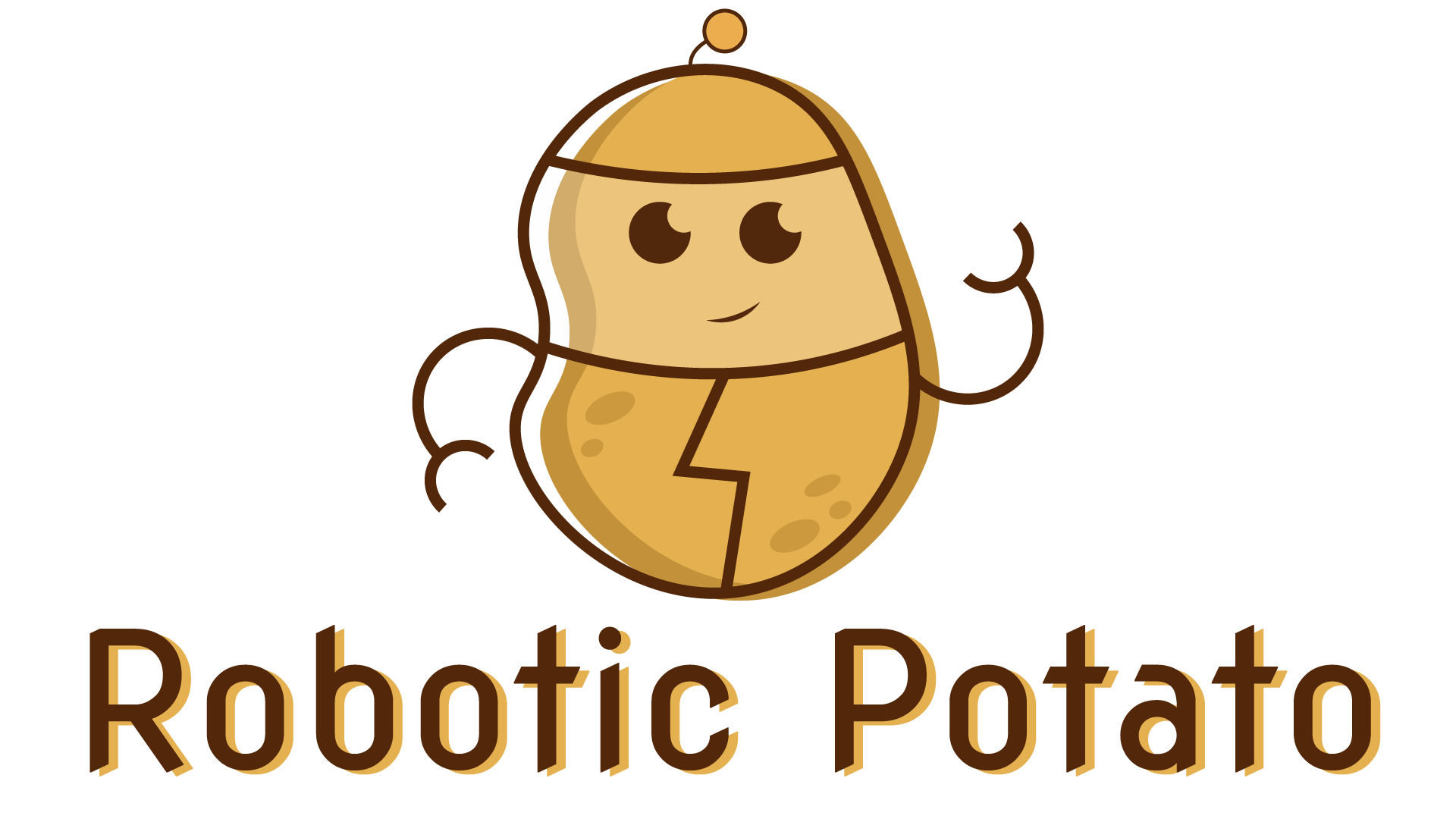Artificial intelligence has revolutionized numerous industries, transforming the way businesses operate and interact with their customers. With the increasing demand for innovative solutions, it’s essential to explore the best AI-powered software available today. From student-friendly platforms to top-notch tools for businesses, we’ll delve into the world of artificial intelligence and uncover the most effective AI-powered software that can elevate your productivity and efficiency.
In this comprehensive guide, we’ll examine the most popular AI programs, discuss the benefits of using AI-powered software, and provide valuable insights into choosing the right tool for your needs. Whether you’re a student looking to improve your research skills or a business seeking to increase its competitiveness, our expert analysis will equip you with the knowledge to make informed decisions about the best AI-powered software for your organization.
From AI-powered writing assistants to machine learning frameworks, we’ll cover the latest trends and innovations in the field of artificial intelligence. Our expert team has conducted extensive research to bring you the most up-to-date information on the best AI-powered software, ensuring that you stay ahead of the curve in this rapidly evolving industry.
So, what sets these AI-powered software apart from others? We’ll explore the features, capabilities, and benefits of each tool, providing you with a detailed understanding of how they can help you achieve your goals. By the end of this article, you’ll be equipped with the knowledge to select the perfect AI-powered software for your unique needs and take your productivity to new heights.
Let’s dive into the world of artificial intelligence and discover the best AI-powered software that can transform your business, education, or personal life. In this comprehensive guide, we’ll explore the most effective AI-powered software, discussing their features, benefits, and applications, and provide expert advice on how to choose the right tool for your needs.
Whether you’re a seasoned professional or just starting out, our expert analysis will provide you with the insights and knowledge necessary to navigate the complex world of artificial intelligence. So, let’s get started and uncover the secrets behind the best AI-powered software that can revolutionize your industry.

What Is the Best AI Software Right Now?
The field of Artificial Intelligence (AI) has experienced tremendous growth in recent years, leading to the development of numerous AI software tools. With so many options available, it can be challenging to determine which one is the best.
Overview of AI-Powered Software
AI-powered software refers to software applications that utilize artificial intelligence and machine learning algorithms to automate tasks, analyze data, and make predictions. These software tools have become increasingly popular in various industries, including healthcare, finance, marketing, and customer service.
Some of the most popular types of AI-powered software include:
- Cloud-based platforms that provide a suite of AI services, including machine learning, natural language processing, and computer vision.
- Cloud-based platforms that offer a range of AI services, including automated machine learning, model deployment, and data science.
- Cloud-based platforms that provide a range of AI services, including natural language processing, machine learning, and computer vision.
- Cloud-based platforms that provide a range of AI services, including automated machine learning, model deployment, and data science.
How Does AI-Powered Software Work?
AI-powered software works by utilizing machine learning algorithms to analyze data and make predictions. These algorithms are trained on large datasets and can learn patterns and relationships between variables.
Machine learning is a subset of artificial intelligence that involves training algorithms on data to enable them to make predictions or decisions. There are several types of machine learning, including supervised, unsupervised, and reinforcement learning.
Deep learning is a type of machine learning that uses neural networks to analyze data. Neural networks are composed of layers of interconnected nodes that process and transmit information.
Factors to Consider When Choosing an AI Program
When choosing an AI program, there are several factors to consider, including cost and pricing models, scalability and performance, and integration with other tools and services.
Cost and pricing models vary widely depending on the vendor and the specific product or service. Some vendors offer free trials or demos, while others require a subscription or purchase.
Scalability and performance are critical considerations for organizations that plan to use AI-powered software extensively. The chosen solution must be able to handle large volumes of data and scale to meet the needs of the organization.
Integration with other tools and services is also important. The chosen solution must be able to integrate with existing systems and workflows to maximize its effectiveness.
Which Software Is Best for AI Programming?
There are several software options available for AI programming, including Python libraries, R libraries, and Java libraries.
Python is a popular choice for AI programming due to its simplicity and flexibility. Popular Python libraries for AI programming include TensorFlow, Keras, and scikit-learn.
R is a popular choice for statistical computing and graphics. Popular R libraries for AI programming include caret, dplyr, and ggplot2.
Java is a popular choice for enterprise-level AI programming due to its robustness and scalability. Popular Java libraries for AI programming include Weka, Deeplearning4j, and Stanford CoreNLP.
Key Skills Required for AI Programming
Key skills required for AI programming include:
- Data structures and algorithms
- Machine learning fundamentals
- Experience with AI frameworks and tools
Data structures and algorithms are essential for building efficient and effective AI programs. Understanding concepts such as arrays, linked lists, and trees is crucial for developing AI applications.
Machine learning fundamentals are also critical for AI programming. Understanding concepts such as supervised and unsupervised learning, regression, and classification is essential for developing accurate and reliable AI models.
Experience with AI frameworks and tools is also highly valued in the industry. Familiarity with popular frameworks such as TensorFlow, PyTorch, and Keras is essential for developing complex and effective AI applications.
What is the Most Powerful AI Program?
The development of artificial intelligence (AI) has led to numerous breakthroughs in various fields, resulting in the creation of sophisticated AI systems. While it’s challenging to pinpoint a single “most powerful” AI program, several advanced AI systems have demonstrated exceptional capabilities in different domains.
Notable AI Programs
- DeepMind’s AlphaFold: Developed by DeepMind, a UK-based AI company acquired by Alphabet Inc., AlphaFold is a deep learning algorithm that can predict the three-dimensional structure of proteins with unprecedented accuracy.
- Google’s LaMDA: LaMDA (Language Model for Dialogue Applications) is a conversational AI developed by Google. It uses a combination of natural language processing (NLP) and machine learning algorithms to engage in human-like conversations.
- Microsoft’s Turing-NLG: Microsoft’s Turing-NLG is a natural language generation model that can produce coherent and context-specific text based on user input.
- IBM’s Watson: IBM’s Watson is a cloud-based AI platform that utilizes natural language processing, machine learning, and data analytics to analyze vast amounts of information.
- Baidu’s DuerOS: Baidu’s DuerOS is a conversational AI developed by the Chinese tech giant Baidu. It uses a combination of NLP and machine learning algorithms to understand and respond to user queries.
While each of these AI programs possesses unique strengths, it’s essential to note that the concept of a single “most powerful” AI program is subjective and may vary depending on the specific application or domain. As AI technology continues to evolve, we can expect to see further advancements in various areas, leading to increased innovation and competition among AI developers.

Best Software for AI Programming
Choosing the best software for AI programming involves considering various factors such as advanced capabilities, ease of use, and seamless integration with development environments. Some top contenders include:
- CodeGeeX: A cutting-edge AI-powered coding assistant tool that offers intelligent code suggestions, autocompletion, and other productivity-enhancing features.
- Google Cloud AI Platform: A comprehensive platform that enables developers to build, deploy, and manage machine learning models using a variety of tools and services.
- Microsoft Azure Machine Learning: A cloud-based platform that provides a suite of tools and services for building, training, and deploying machine learning models.
- IBM Watson Studio: A cloud-based platform that offers a range of tools and services for building, training, and deploying machine learning models.
- PyTorch: An open-source machine learning framework developed by Facebook’s AI Research Lab.
- TensorFlow: Another popular open-source machine learning framework developed by Google.
- Keras: A high-level neural networks API written in Python.
- Jupyter Notebook: A web-based interactive computing environment that allows users to create and share documents containing live code, equations, visualizations, and narrative text.
- RapidMiner: A business intelligence platform that offers a range of tools and services for building, training, and deploying machine learning models.
- DataRobot: A cloud-based platform that offers a range of tools and services for building, training, and deploying machine learning models.
These software options offer a range of benefits, including improved productivity, increased accuracy, and enhanced decision-making capabilities. By choosing the right software for AI programming, developers can unlock the full potential of artificial intelligence and drive innovation in their respective fields.
What is the Best AI Platform?
Choosing the best AI platform depends on several factors, including the type of project, budget, and desired outcomes. With numerous platforms available, it can be overwhelming to determine which one is the most suitable for your needs.
Popular AI Platforms
Some of the most popular AI platforms include:
- Google Cloud AI Platform: A cloud-based platform that provides a suite of AI services, including machine learning, natural language processing, and computer vision.
- Microsoft Azure Machine Learning: A cloud-based platform that enables users to build, deploy, and manage machine learning models.
- Amazon SageMaker: A fully managed service that allows users to build, train, and deploy machine learning models.
- IBM Watson Studio: A cloud-based platform that provides a range of AI services, including natural language processing, machine learning, and computer vision.
- H2O.ai Driverless AI: An automated machine learning platform that simplifies the process of building and deploying machine learning models.
- TensorFlow: An open-source machine learning framework developed by Google.
- PyTorch: Another open-source machine learning framework that provides a dynamic computation graph and automatic differentiation.
- RapidMiner: A business analytics platform that provides a range of AI and machine learning tools.
- Kubeflow: An open-source platform that provides a range of AI and machine learning tools, including model serving, batch prediction, and hyperparameter tuning.
- Zapier: A workflow automation platform that integrates with a range of AI and machine learning services.
Factors to Consider
When choosing the best AI platform, consider the following factors:
- Project requirements: Determine the type of project you’re working on and choose a platform that meets those needs.
- Budget: Consider the cost of using each platform, including any subscription fees or licensing costs.
- Desired outcomes: Choose a platform that provides the features and functionalities you need to achieve your goals.
- Integration: Consider how easily each platform can integrate with other tools and services you’re using.
By considering these factors and evaluating different options, you can choose the best AI platform for your project.
What Are the Most Useful AI Tools?
When it comes to choosing the best AI tools, it’s essential to consider several factors, including features, capabilities, strengths, weaknesses, user reviews, and feedback.
- Artificial Intelligence Software is a popular choice among businesses and individuals alike, offering a wide range of features and capabilities.
- Microsoft Azure Machine Learning is another top contender, providing a robust platform for building, training, and deploying machine learning models.
- Amazon SageMaker is a cloud-based platform that allows users to build, train, and deploy machine learning models, making it an excellent choice for businesses and developers.
Comparison of Popular AI Tools
Each of these AI tools has its unique strengths and weaknesses, making it essential to compare them before making a decision.
| Features and Capabilities | Strengths and Weaknesses |
|---|---|
| Artificial Intelligence Software | Robust feature set, user-friendly interface, excellent customer support |
| Microsoft Azure Machine Learning | Powerful platform, scalable, flexible, but steep learning curve |
| Amazon SageMaker | Cloud-based, easy to use, fast deployment, but limited customization options |
Which AI is Better Than ChatGPT?
ChatGPT has been widely recognized as one of the most advanced language models available today. However, whether it is “better” ultimately depends on the specific use case and requirements.
Some AI models, such as those developed by Meta AI, demonstrate a deeper understanding of context and nuance in human communication, making them well-suited for applications requiring high levels of contextual awareness.
Other AI models, such as those based on transformer architectures, can be deployed on cloud infrastructure or edge devices, making them an excellent choice for businesses and developers.
Ultimately, the choice between ChatGPT and other AI models depends on your specific needs and requirements. By considering factors such as domain-specific expertise, contextual understanding, conversational flow, knowledge graph-based reasoning, multimodal interaction, explainability and transparency, scalability and deployment, and cost and licensing, you can select the most suitable AI solution for your application and achieve optimal results.

What Is the AI App That Everyone Is Using?
Artificial intelligence (AI) has become increasingly ubiquitous in our daily lives, transforming the way we interact with technology and each other.
- Google uses natural language processing (NLP) to understand voice commands and perform tasks such as setting reminders, sending messages, and controlling smart home devices.
- Facebook utilizes AI-powered algorithms to personalize user experiences, recommend content, and detect and prevent online harassment.
- Apple Maps employs AI-driven routing systems to optimize routes, predict traffic patterns, and provide real-time updates on road conditions.
- Fitbit leverages AI-powered analytics to track user activity, provide personalized recommendations, and monitor health metrics.
- Todoist uses AI-driven tools to automate workflows, prioritize tasks, and optimize productivity.
- Duolingo employs AI-powered chatbots and speech recognition technology to engage users, provide personalized feedback, and facilitate language acquisition.
- Amazon uses NLP to understand customer inquiries, provide product information, and resolve issues efficiently.
- Adobe Photoshop utilizes AI-powered tools to enhance image and video quality, apply filters, and create unique effects.
- Spotify uses AI-driven recommendation algorithms to suggest music based on user preferences, listening history, and mood.
- Fortnite incorporates AI-powered game mechanics, such as machine learning-based opponents and adaptive difficulty levels, to enhance gameplay and engagement.
Key Characteristics of AI-Powered Apps
AI-powered apps share certain characteristics that enable them to provide exceptional user experiences and drive business success.
- Personalization: AI-powered apps use machine learning algorithms to analyze user behavior and provide personalized recommendations, improving engagement and conversion rates.
- Automation: AI-powered apps automate repetitive tasks, freeing up human resources for more complex and creative work.
- Intelligence: AI-powered apps leverage natural language processing (NLP), computer vision, and predictive analytics to gain insights and make informed decisions.
- Scalability: AI-powered apps can handle large volumes of data and scale to meet growing demands, ensuring seamless performance and reliability.
Benefits of Using AI-Powered Apps
AI-powered apps offer numerous benefits, including improved efficiency, enhanced decision-making, and increased customer satisfaction.
- Increased Efficiency: AI-powered apps automate routine tasks, reducing manual labor and increasing productivity.
- Enhanced Decision-Making: AI-powered apps provide data-driven insights, enabling informed decision-making and strategic planning.
- Improved Customer Satisfaction: AI-powered apps offer personalized experiences, improving customer engagement and loyalty.
- Competitive Advantage: AI-powered apps differentiate businesses from competitors, establishing market leadership and driving growth.

0 Comments